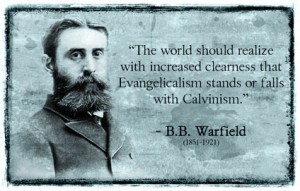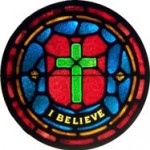 A Brief and Untechnical Statement of the Reformed Faith by Benjamin Breckinridge Warfield
A Brief and Untechnical Statement of the Reformed Faith by Benjamin Breckinridge Warfield
1. I believe that my one aim in life and death should be to glorify God and enjoy him forever; and that God teaches me how to glorify him in his holy Word, that is, the Bible, which he had given by the infallible inspiration of this Holy Spirit in order that I may certainly know what I am to believe concerning him and what duty he requires of me.
2. I believe that God is a Spirit, infinite, eternal and incomparable in all that he is; one God but three persons, the Father, the Son, and the Holy Ghost, my Creator, my Redeemer, and my Sanctifier; in whose power and wisdom, righteousness, goodness and truth I may safely put my trust.
3. I believe that the heavens and the earth, and all that in them is, are the work of God’s hands; and that all that he has made he directs and governs in all their actions; so that they fulfill the end for which they were created, and I who trust in him shall not be put to shame but may rest securely in the protection of his almighty love.
4. I believe that God created man after his own image, in knowledge, righteousness and holiness, and entered into a covenant of life with him upon the sole condition of the obedience that was his due: so that it was by willfully sinning against God that man fell into the sin and misery in which I have been born.
5. I believe, that, being fallen in Adam, my first father, I am by nature a child of wrath, under the condemnation of God and corrupted in body and soul, prone to evil and liable to eternal death; from which dreadful state I cannot be delivered save through the unmerited grace of God my Savior.
Continue reading

 When people ask me what historic Christian creeds I affirm I say:
When people ask me what historic Christian creeds I affirm I say: By John Starke:
By John Starke: